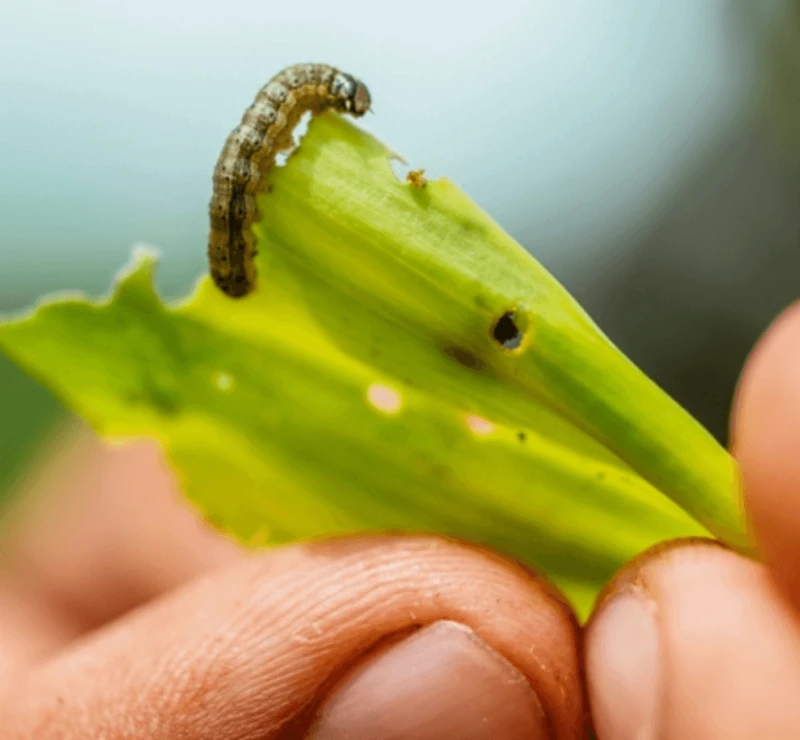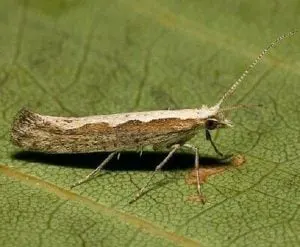Self-limiting ‘Friendly’ technology offers hope for controlling fall armyworm without pesticides
Self-limiting ‘Friendly’ technology offers hope for controlling fall armyworm without pesticides


Like its existing programs against dengue- and Zika-carrying mosquitoes, the fall armyworm effort will use Oxitec’s “Friendly” self-limiting insect technology. This employs genetic engineering to introduce a gene that prevents offspring of the pests surviving into adulthood, thereby dramatically reducing the population.
Fall armyworm (FAW) is one of the most destructive crop pests in the world. In recent years it has moved from the Americas into Africa and Asia, devastating maize and other crops and seriously threatening food security for hundreds of millions of subsistence farmers.
Conventional control tends to depend on toxic insecticides, which increase farmers’ costs and can damage human and environmental health. In addition, fall armyworm has become increasingly resistant to insecticide sprays.
Oxitec’s program is initially focused in Brazil, where field trials have been conducted under Brazilian regulatory agency approvals. The company already has a successful mosquito-control effort underway in the country, with pilot efforts generating over 90 percent suppression in target disease-carrying mosquitoes.
Oxitec’s “Friendly” technology in the mosquito species Aedes aegypti was granted full biosafety approval in Brazil in May this year and can now be used nationwide.
The fall armyworm is a particular worry for farmers because its caterpillars attack a wide range of crops. The FAW prefers maize but can also feed on more than 80 other crops, including wheat, sorghum, millet, sugarcane, vegetable crops and cotton. While the insect-resistant Bt maize grown by most Brazilian farmers offers some protection, the FAW can develop resistance unless other control strategies, such as Oxitec’s, are deployed simultaneously.

The use of different pest-control strategies in this way is a fundamental tenet of the integrated pest management (IPM) approach — an agro-ecological strategy pioneered by Cornell University’s Professor Tony Shelton. Shelton, an entomologist, recently worked with Oxitec on a similar program against diamondback moth, a pest that targets cabbage and other brassica crops.
In a post published on the social media site LinkedIn, Oxitec CEO Grey Frandsen wrote: “The Oxitec ‘Friendly’ fall armyworm is a safe, non-toxic and species-specific control tool that has no impact on beneficial species like bees and butterflies and is self-limiting in the environment. This collaboration represents our collective effort to develop safe, sustainable and highly effective technologies to bolster farmers’ ability to manage these devastating pests.”
Grey continued: “As fall armyworm spreads rapidly beyond the borders of North and South America to Africa and Asia, we believe collaboration will lead to significant advances that will help counter this challenge.”
According to the company, more than 100 peer-reviewed studies have been published about its technology.
Bob Reiter, head of crop science research and development at Bayer, added: “The collaboration between Bayer and Oxitec in the development of a ‘Friendly’ fall armyworm explores a promising new approach to support integrated pest management, helping farmers manage destructive pests in a more sustainable way, while reducing the need for other inputs.”
According to the United Nation’s Food and Agriculture Organization, “FAW represents a real threat to food security and livelihoods of millions of smallholder farmers. FAW has spread across all of sub-Saharan Africa, the Near East and Asia. It will likely soon be present in southern Europe. FAW is a resident pest and once it has arrived in a country, it is there to stay.”
FAW spread across central and western Africa from the Americas in 2016, eastern Africa in 2017 and moved into India in 2018. It hit China in 2019 and reached Australia in 2020. FAW control efforts have been substantially affected by the COVID-19 pandemic, further increasing worries about harvest losses and global food security.
Once established in a country, FAW is almost impossible to eradicate as an adult can fly up to a hundred kilometers in a single night. According to FAO, “based on 2018 estimates from 12 African countries, up to 17.7 million tonnes of maize could be lost annually due to FAW on that continent — enough to feed tens of millions of people. The most direct impact of these losses hits smallholder maize farmers, most of whom rely on the crop to stave off hunger and poverty.”
Dr. Neil Morrison, Oxitec’s head of agriculture programs, added: “We are working around the clock to develop solutions that will help address food insecurity for billions of people worldwide. We’re doing so with technology that doesn’t harm the environment. This allows us to deliver benefits to consumers, growers and the environment, which is what we should expect of innovative pest control technology in the coming decades.”
Oxitec’s approach is likely to be the most environmentally friendly of all control strategies because it is entirely species-specific: male self-limiting fall armyworms find and mate with female fall armyworms while doing no harm to beneficial species like bees and butterflies and helping reduce the use of pesticides.
The self-limiting approach means that, after release stops, the gene will disappear from the environment, leaving no lasting effects other than fewer pests and improved harvests.
“Fall armyworm knows no boundaries,” CIMMYT’s Dr. B.M. Prasanna said. “We need an integration of various approaches, including biological control, to help farmers manage this devastating pest. We support effective, scalable and sustainable solutions, and look forward to learning more about the Oxitec-Bayer research collaboration as it moves forward.”
Mark Lynas is a British author, journalist and environmental activist who focuses on climate change. He is a contributor to New Statesman, The Ecologist, Granta and Geographical magazines, and The Guardian and The Observer newspapers in the UK; he also worked on the film The Age of Stupid. Follow him on Twitter @mark_lynas
This article was originally published at Cornell Alliance for Science and has been republished here with permission. Follow the Alliance on Twitter @ScienceAlly

 | Videos | More... |

Video: Nuclear energy will destroy us? Global warming is an existential threat? Chemicals are massacring bees? Donate to the Green Industrial Complex!
 | Bees & Pollinators | More... |

GLP podcast: Science journalism is a mess. Here’s how to fix it

Mosquito massacre: Can we safely tackle malaria with a CRISPR gene drive?

Are we facing an ‘Insect Apocalypse’ caused by ‘intensive, industrial’ farming and agricultural chemicals? The media say yes; Science says ‘no’
 | Infographics | More... |

Infographic: Global regulatory and health research agencies on whether glyphosate causes cancer
 | GMO FAQs | More... |

Why is there controversy over GMO foods but not GMO drugs?

How are GMOs labeled around the world?

How does genetic engineering differ from conventional breeding?
 | GLP Profiles | More... |

Alex Jones: Right-wing conspiracy theorist stokes fear of GMOs, pesticides to sell ‘health supplements’




 California, Washington, Oregon forge immunization alliance to safeguard vaccine access against federal undermining
California, Washington, Oregon forge immunization alliance to safeguard vaccine access against federal undermining Trust issues: What happens when therapists use ChatGPT?
Trust issues: What happens when therapists use ChatGPT? Fighting deforestation with CO2: Biotechnology breakthrough creates sustainable palm oil alternative for cosmetics
Fighting deforestation with CO2: Biotechnology breakthrough creates sustainable palm oil alternative for cosmetics Viewpoint — Fact checking MAHA mythmakers: How wellness influencers and RFK, Jr. undermine American science and health
Viewpoint — Fact checking MAHA mythmakers: How wellness influencers and RFK, Jr. undermine American science and health 30-year-old tomato line shows genetic resistance to devastating virus
30-year-old tomato line shows genetic resistance to devastating virus The free-range chicken dilemma: Better for birds, but with substantial costs
The free-range chicken dilemma: Better for birds, but with substantial costs Viewpoint: Video — Big Solar is gobbling up productive agricultural land and hurting farmers yet providing little energy or sustainabilty gains
Viewpoint: Video — Big Solar is gobbling up productive agricultural land and hurting farmers yet providing little energy or sustainabilty gains ‘You have to treat the brain first’:Rethinking chronic pain with Sanjay Gupta
‘You have to treat the brain first’:Rethinking chronic pain with Sanjay Gupta
